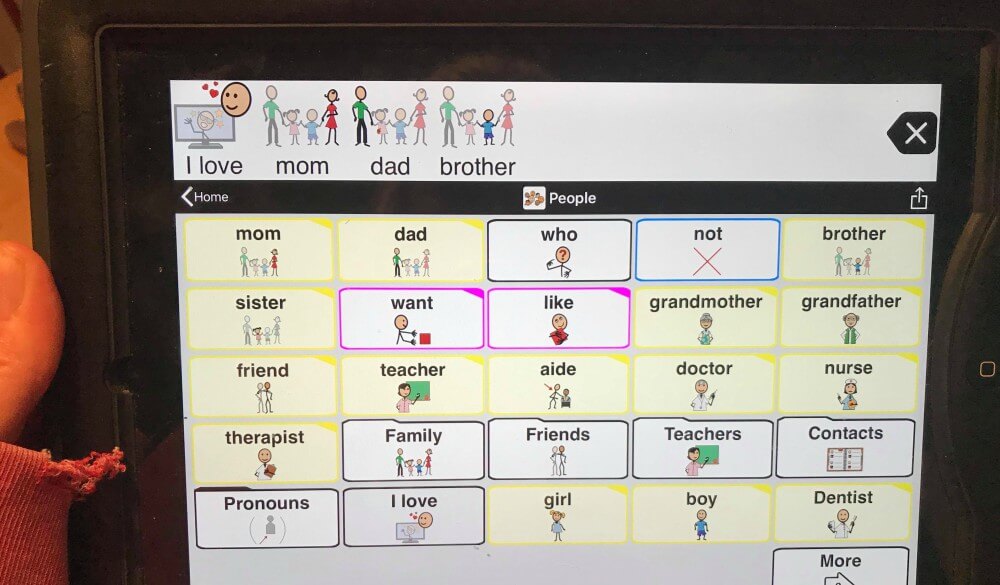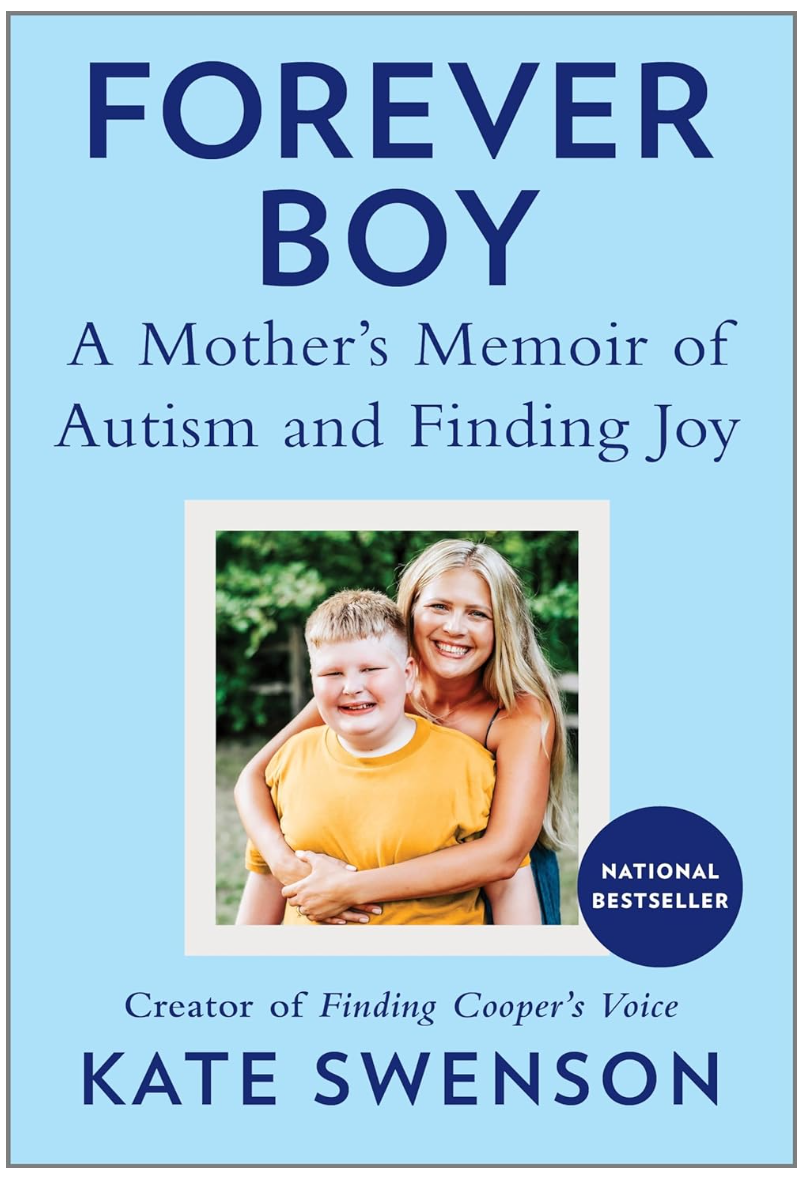Helping Nonverbal Kids to Communicate

My son is almost seven years old. He has autism. He was and is nonverbal. I like to mention that because some kiddos with autism speak at some point and lose their speech. I can’t imagine how hard that must be for parents. To hear their child speak one day and not the next must be gut wrenching.
Our story is a bit different. My son has never spoke. He has never babbled. He has no approximations. He mostly screeches, screams and hums. I’ve never heard a word like sound come out of his mouth. When he does try and verbally communicate, only after being prompted, he only makes vowel sounds. My son most likely has Apraxia as well.
It’s tough.
I don’t know if my son will ever speak to me. I don’t know if I will ever hear him say mom or I love you. After six years I’m coming to terms with it. It’s a journey I tell ya.
When Cooper turned three a Speech Therapist brought up the idea of a Speech Device.
My first reaction was absolutely not. A Speech Device scared me. I thought it would limit what little verbal communication my son had. I was scared that he would go silent. I was scared he’d get teased. And honestly, I was worried to try something new and fail. If you have a kiddo who is nonverbal or has limited communication I am sure you have heard about Talking Devices, Speech Devices, or Assistive Technology. And if you are new to the world of autism it can all seem a little bit scary and overwhelming.
At that time I was still wrapping my brain around the idea of my son not speaking. The term nonverbal autism was one I hadn’t heard before. I was sad and scared and a whole other bunch of emotions mixed in. I kept telling myself if we held out a little bit longer he would start talking.
It also felt in a way like giving up. Thinking about having a computer talk for my son was more than I could handle.
I opted to start with a PECs instead. It felt like a good transition. Only PECs didn’t work for him. They caused him more frustration and implementing at home felt impossible.
When Cooper turned five we were once again reintroduced to trying a Speech Device. We had a fantastic Speech Therapist who said it would drastically help Coops. Again, I was nervous. I thought it would limit what little communication he had. Even though he had no words I was scared of regression. I was scared that he would go silent. I was scared he’d get teased. And honestly, I was worried about trying yet another tactic and failing.
This time we did it though. We dove right in.
Today, Cooper is fluent with his device. His device is loaded with hundreds of pictures. He pages through and types five word sentences. He asks me for food, treats, parties and family members. He tells me what he wants to do during a day.
My son now communicates with me. It’s still not conversational. We aren’t chatting about his feelings or his hopes or dreams. But, we are still communicating. We are getting there.
Learn how we got started with a Talking Device HERE.
Watch this video to see Cooper during a typical speech interaction. Even though Cooper CAN communicate fluently with his device he still prefers to communicate nonverbally by pointing and making sounds. It’s just easier. And honestly, I know what he wants. So, I have had to train myself as well to encourage him to speak through the device. It’s hard sometimes. It feels like ‘another’ thing on top of an already busy moment.
It’s worth it though. I won’t always be around to communicate for him. I highly recommend giving your nonverbal child a voice. Don’t wait any longer. Once Cooper became fluent we lessened meltdowns and behaviors.
And, a little cuteness. This video captured the first request my son ever ‘verbally‘ asked me:
Have questions about Cooper’s device or the process to get one? Leave a comment in the Facebook post and I’ll answer them in a video!

